#black music history
Photo
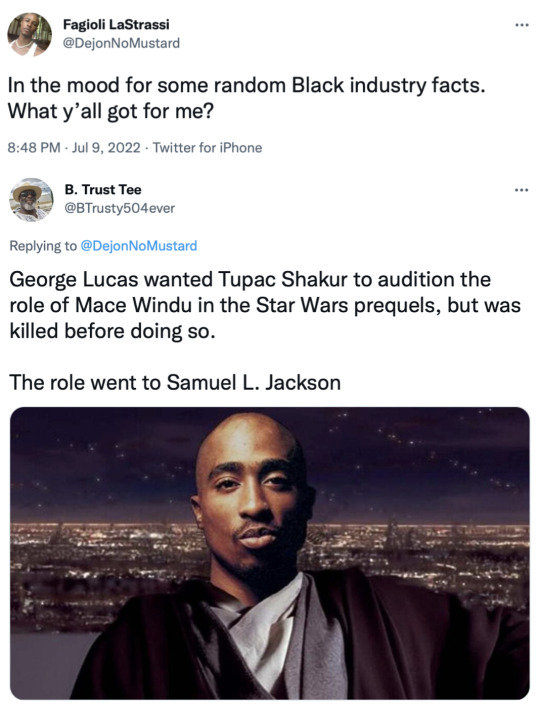

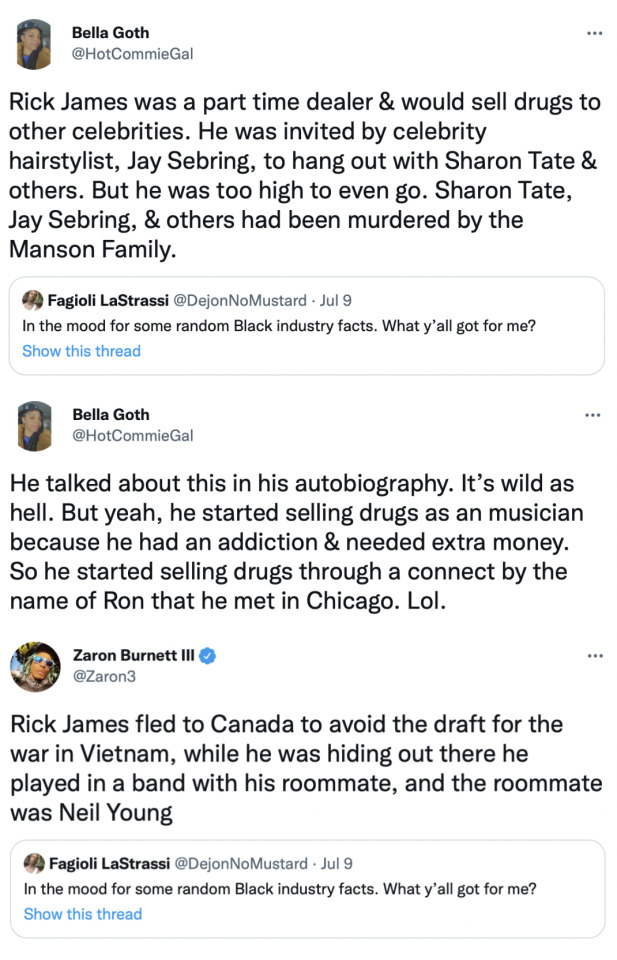
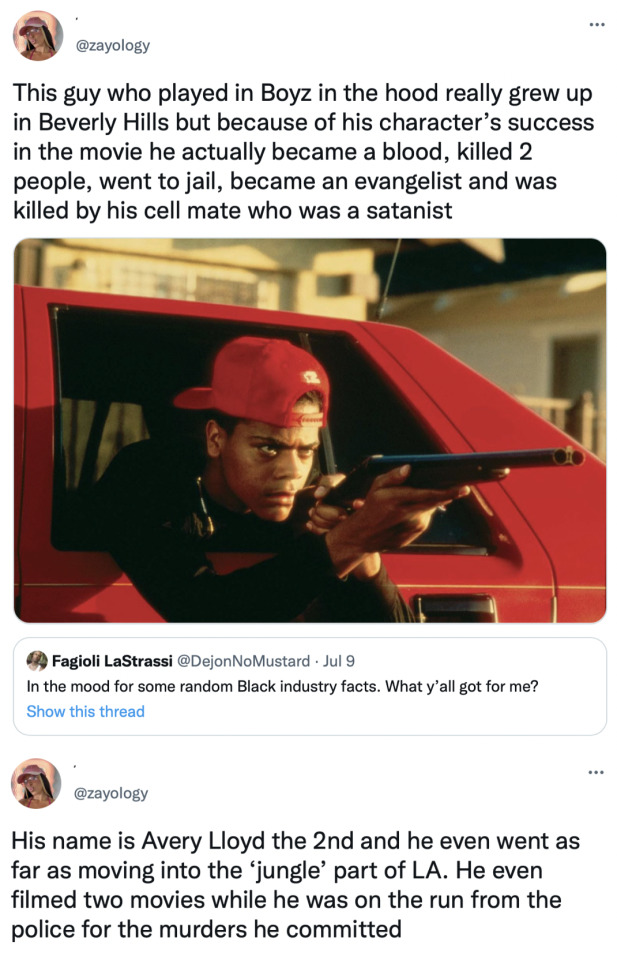
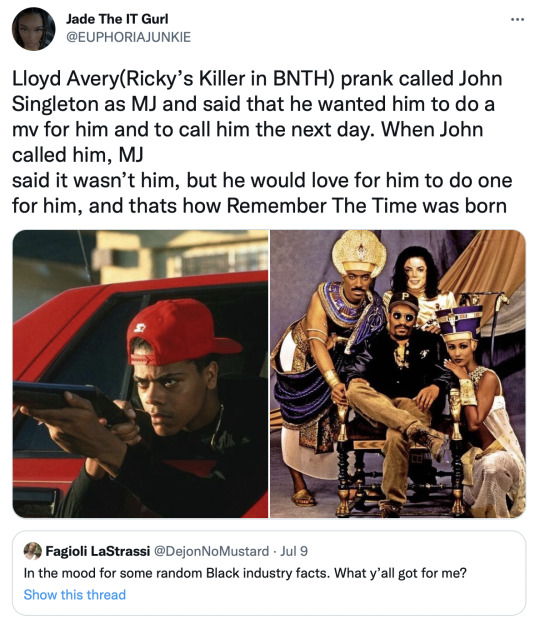
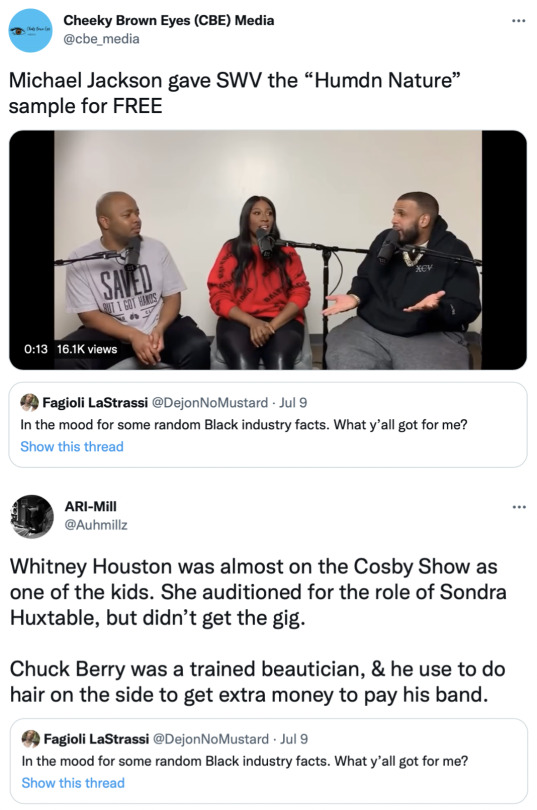
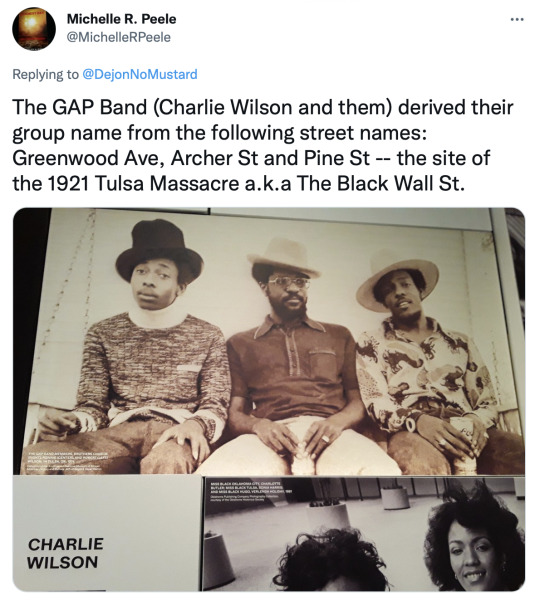
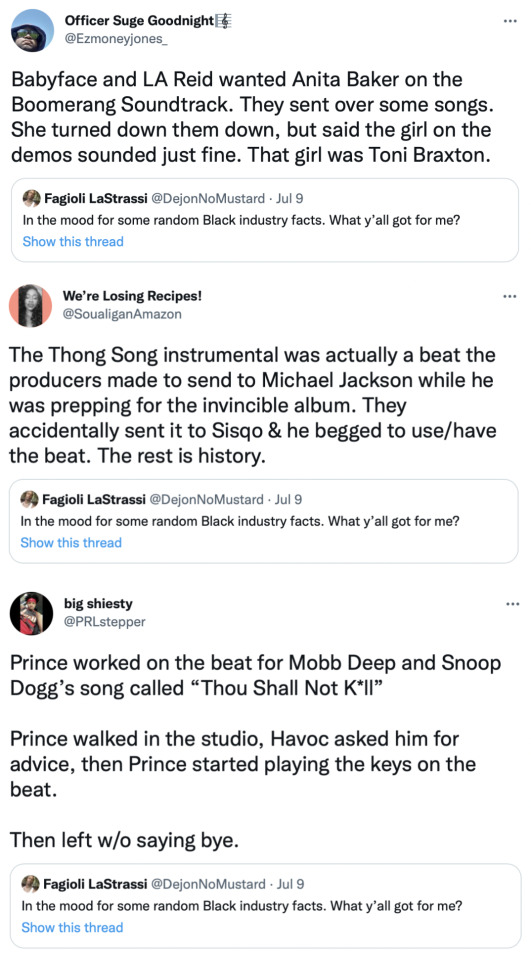

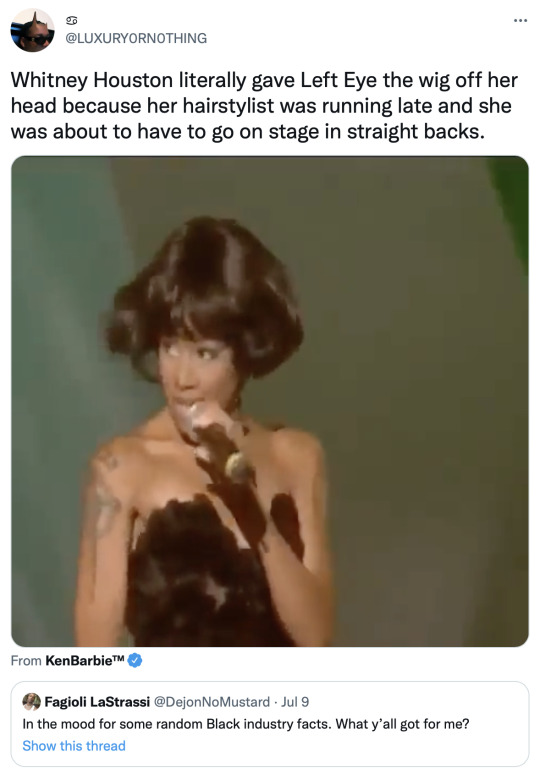
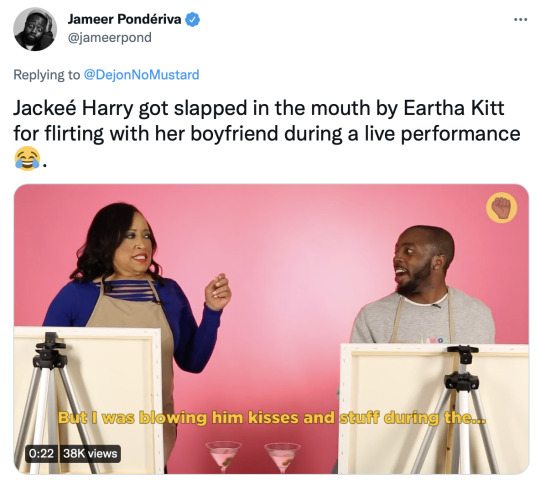
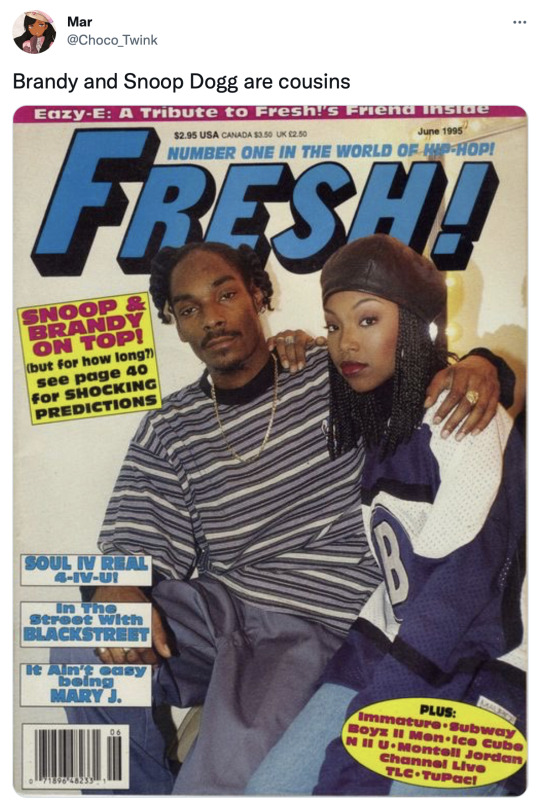

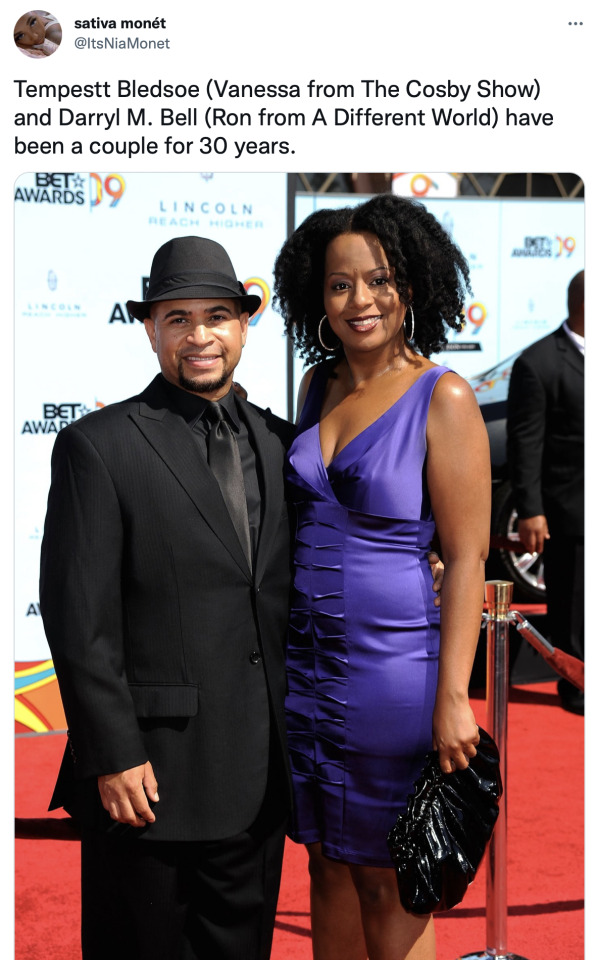
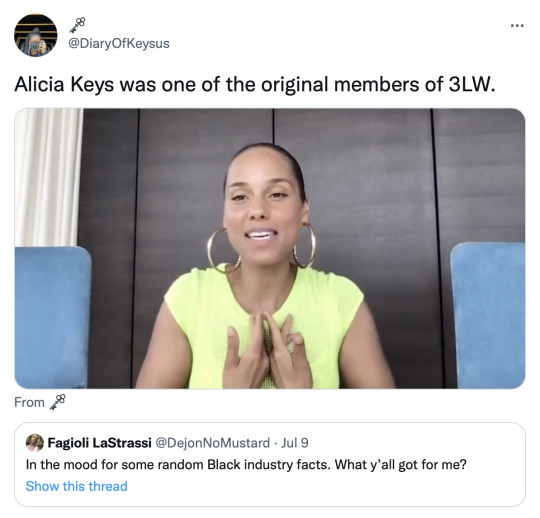
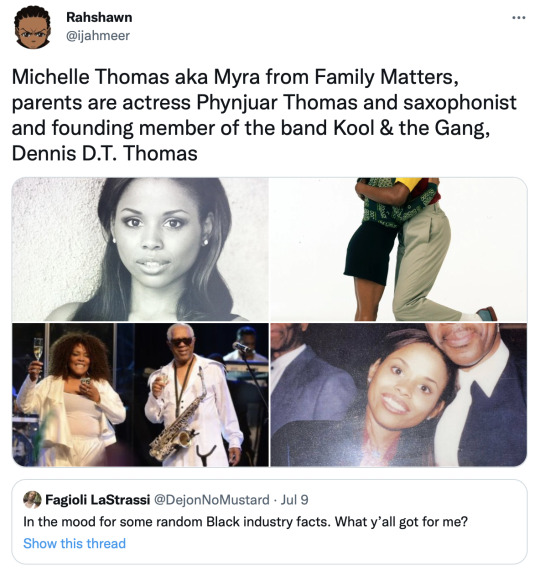
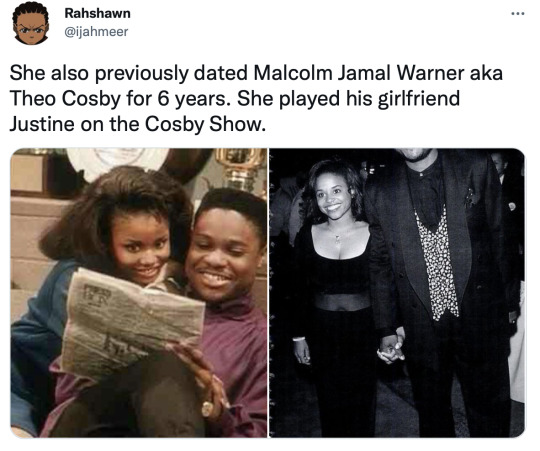

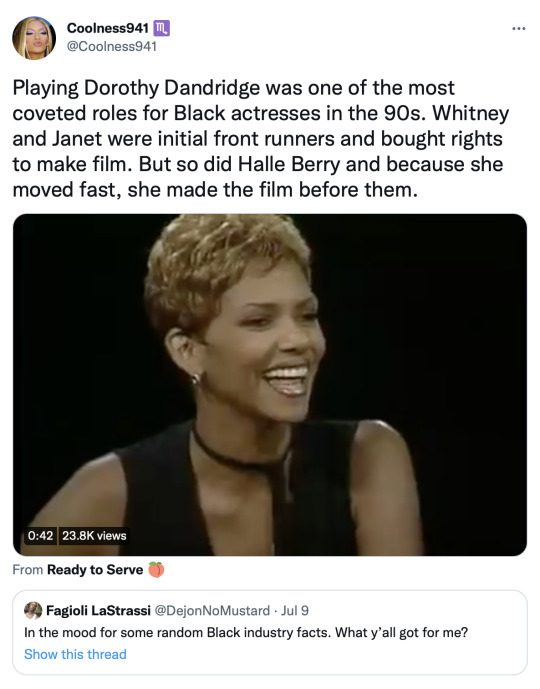
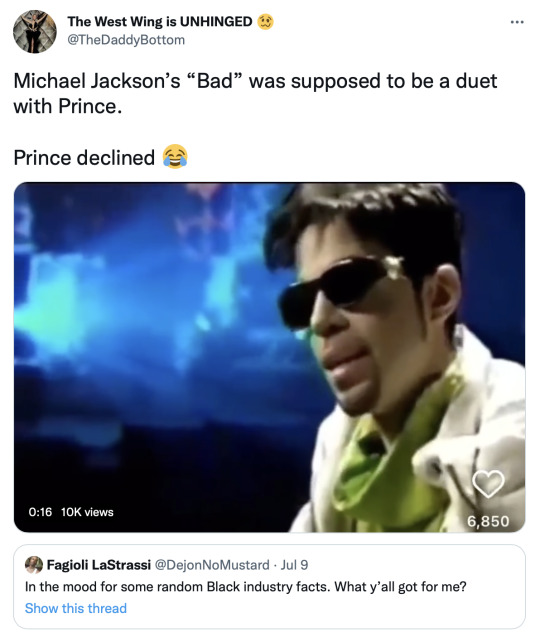
Y’all wanted more, ya got it 😏.
This is Part 3. For more: Part 1, Part 2, Part 4, Part 5, Part 6, Part 7, Part 8, Part 9, Part 10, Bonus
#black american history#black music history#movie history#michael jacksion#boyz n the hood#rick james#tupac#tina m ball#grunge music#black wall street#prince#whitney houston#thechanelmuse trivia
3K notes
·
View notes
Text
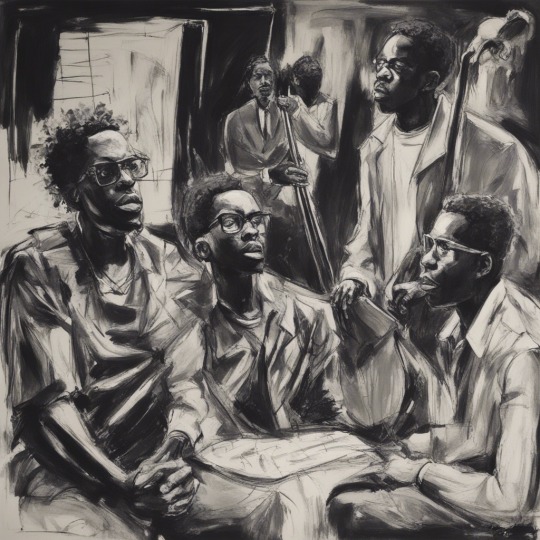
UNIFIED SOUND
#black men#black musicians#black music history#art#my art#digital art#original art#artists on tumblr#artwork#illustration#rap#hip hop#fine art#graphic art#underground#neo expressionism#skull art#black tumblr#black power#fashion#black beauty#black woman#black women#black is gold#smooth jazz#jazz fusion#jazz music#jazz
62 notes
·
View notes
Text
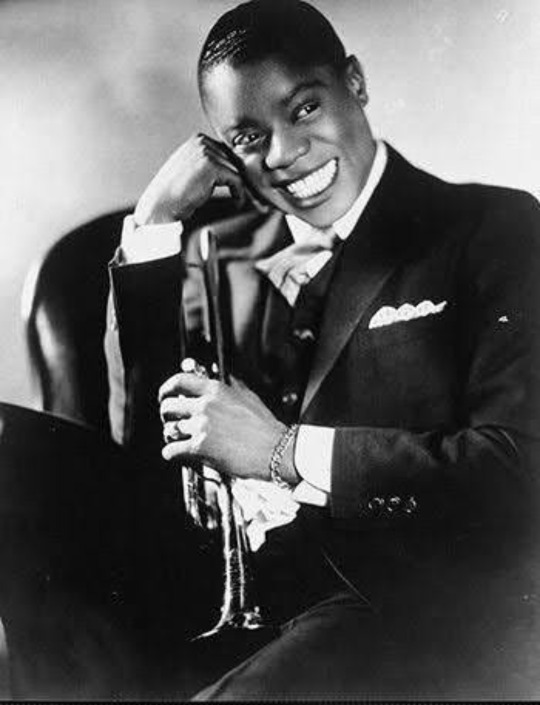



Louis Armstrong (1901-1971)
Louis Daniel Armstrong, nicknamed "Satchmo", "Satch", and "Pops", was an American trumpeter and vocalist. He is among the most influential figures in jazz. His career spanned five decades and different eras in the history of jazz. Armstrong was born and raised in New Orleans. - Wikipedia
#dreams in blk#black tumblr#black beauty#poc aesthetic#black people#black joy#black pride#black and white photography#blackness#black music#jazz legend#louis armstrong#vintage black hollywood#vintage black#black history 365#black history#black music history#jazz musicians#jazz music#trumpet player#jazz#black culture#cultural icon#black musicians#musicianslife#music history#black excellence 365#black men#black kings
711 notes
·
View notes
Text
Uncovering the History of the Banjo with Rhiannon Giddens: From African Roots to American Music
A little clip with Rhiannon who played for Beyonce's new country tunes. (She also has the country/blugrass/roots music band the Carolina Chocolate Drops)
youtube
29 notes
·
View notes
Text
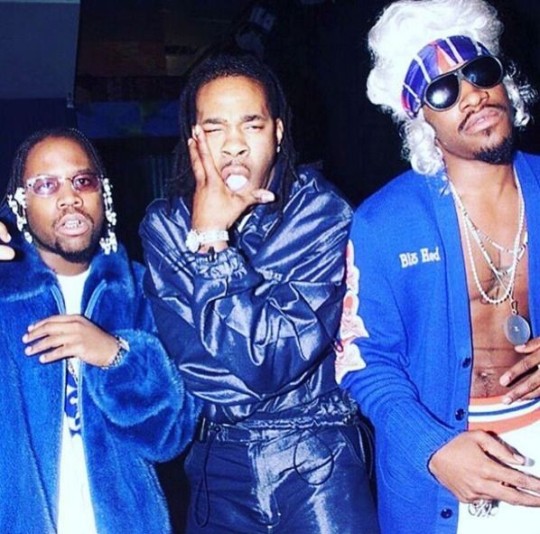
#busta rhymes#outkast#black tumblr#big boi#andre 3000#black literature#black excellence#black community#black music history#old school rap#rap album#rapmusic#rap#hip hop music#black archives#hiphop
346 notes
·
View notes
Text
Yesterday we venerated Ancestor Rosetta Tharpe on her 108th birthday. 🎉
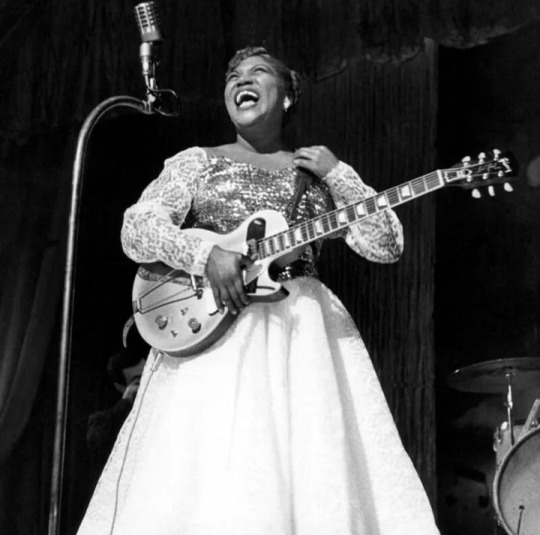
Definitively crowned as THE Godmother of Rock N Roll, Sister Rosetta Tharpe was a trailblazing pioneer whose legacy continues to inspire, revolutionize, & cement our footprint in America's arguably longest standing music genres.
Sister Rosetta Tharpe's musical genius is found at the crossroads between the old church house & 40s nightclubs. Born to a family of traditional evangelists & cotton pickers, she grew up in a world immersed in music & performance. She'd go on to engineer an infusion of Delta Blue's, New Orleans Jazz, & Gospel. Her unique playing style paired with her striking range in voice was both enthralling to her fans & appalling to her church family & folks. As if being a woman & Negro holding a guitar wasn't enough, her audacity compelled her to find the sweet harmonious center in secular themed music. Her sexually charged songs lined with faithful praise and gritty giration marked a collective shift in the midst of the Prohibition Era & WWII in what was viewed as popular music among Black and Mixed audiences.
She is the powerhouse that gave voice, sound, & style to the legendary likes of Chuck Berry, Little Richard, Aretha Franlkin - and to the leeching likes of Elvis & Johnny Cash who began to sample her blueprint at the downswing of her 40 year long career. It was the swing of her hips paired with the strum of her guitar that ignited the international sensation that we call, Rock, today & the array of subgenres that stem from it. We owe it ALL to Sister Rosetta Tharpe.
"Can't no man play like me!” - Sister Tharpe
We pour libations & give Sister Rosetta Tharpe her due 💐 for her fearless heart & raw talent, who's ripple effect charted our course in music history.
Offering suggestions: play her music, a COGIC Bible verse, & libations of whiskey or gin.
<< FINAL copies of The 2023 Hoodoo's Calendar are available for purchase. Subscribe to the official e-newsletter for the latest updates & exclusive content access. Link in bio🌟 >>
#the hoodoo calendar#hoodoos#hoodoo#atr#atrs#ancestor veneration#rosetta tharpe#Godmother of Rock n roll#rock n roll#black music history#cogic
107 notes
·
View notes
Text
youtube
#Percuasso#Drums#live performance#drum solo#Tony WIlliams#Negro Muscia#Black Music History#descanse no paraíso#Youtube
16 notes
·
View notes
Text
So I was grabbed hold of by my music hyperfixation today and it turned out, today's the day I learn more about the history of American music as made by African Americans. Since, you know, they did most of it.
I've known for a long time that American music has deep roots in Black experiences and culture, but it was always such a behemoth of genres and artists that I didn't know what exactly I liked or where to start.
So, today, I figured I'd do what I do best and start with all of it at once.
Okay, not exactly. I'm doing it in chronological order. But in order to accurately order the shitload of playlists and folders I was making on Spotify, I needed to know what order those genres were discovered in.
I am not in school for this, I'm not educated on this and, as a white person, I don't feel like I have the nuance, experience, or understanding to properly write a massive post about this topic, but I did want to share a few articles I've read today, because they were extremely well-written (as far as I can tell), informative, and moving.
Reasons to Read These
African Americans have been the driving force in just about every music genre that's come out of America. If you don't already know that, or want to know more, you should read these.
Do you find music and musical evolution fascinating? You should read these.
Are you queer? Disco is part of queer culture as well and the overlap between Black and queer culture in that time period leans heavily on disco, which is fascinating and part of your own history. You should read these.
If you care about racial tensions in the US, the article that talks about Earth, Wind, & Fire goes into the ways disco impacted racial tensions in the US in the late 70s. It's good knowledge to have under your belt. You should read these.
Bonus shout out to The Get Down on Netflix. I watched this a year or two ago and was obsessed with it for a few days until the fixation passed. This is part of the driving inspiration for me looking into the history of disco and hip-hop so extensively today, because the vibes in the show were just... enrapturing. And, looking at the Wikipedia page for it to double check how it was received by people who know more than me, it does seem to have good reception. I especially like that they involved historical pioneers in its creation (DJ Grandmaster Flash, who invented modern use of turntables for hip-hop, DJ Kool Herc, and Kurtis Blow, all in their 60s and part of the original hip-hop scene in the Bronx). So if you want to watch something that will get you hyped about disco and hip-hop, I can just about promise you that'll do it. Needless to say, I will be rewatching it very soon.
Long but detailed and very well written. Has many artist suggestions:
A shorter summary for someone who wants a quick read:
I hope some of you will click through and learn something with me today c:
#music#history#music history#jazz#disco#hip hop#rap#queer#queer history#black history#blm#black music#black music history#earth wind and fire#african american music#racism mention
14 notes
·
View notes
Photo
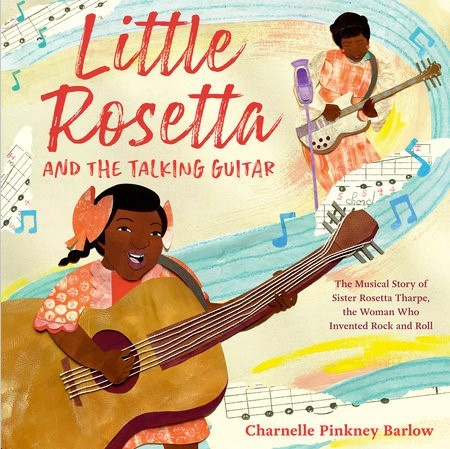

✍🏿Debut You 2023
Meet Charnelle Pinkney Barlow, author of Little Rosetta and the Talking Guitar: The Musical Story of Sister Rosetta Tharpe, the Woman Who Invented Rock and Roll
Little Rosetta and the Talking Guitar is an imagining of what it might have been like as young Sister Rosetta learned the acoustic guitar. She listens to the sounds around her community and draws inspiration from them. Along the way, we see that Little Rosetta overcomes struggles during the learning process.
Read more from Charnelle Pinkney Barlow HERE
📖Little Rosetta and the Talking Guitar: The Musical Story of Sister Rosetta Tharpe, the Woman Who Invented Rock and Roll
Charnelle Pinkney Barlow
Doubleday BYR
February 28, 2023
Picture Book
Ages: 3+
Pages: 40
Available for pre-order👉🏿Amazon | Bookshop
#our stories matter#rosetta tharpe#charnelle pinkney barlow#black music history#black women in history#black authors
38 notes
·
View notes
Text
AL.com: Legendary R&B singer retiring after 54 years: ‘It’s been a great ride through the decades’
Frankie Beverly, the charismatic frontman of Maze, has announced that he’ll retire this year, after a farewell tour with the R&B band that made him famous.

Six shows were announced this week for Beverly’s “I Wanna Thank You Farewell Tour,” including an April 6 concert at the Mobile Fairgrounds, also known as The Grounds. The dates start on March 22 at the State Farm Arena in Atlanta, and end on May 12 at the Kia Forum in Los Angeles. More tour stops will be announced in the weeks and months to come, according to a press release.

Beverly, 77, is a favorite in Alabama, playing to cheering crowds at concert venues and festivals throughout the state. His signature tunes with Maze range from electric funk to romantic jams to classic R&B, and include “Southern Girl,” “Back in Stride,” “We Are One,” “Golden Time of Day,” “Can’t Get Over You,” “The Morning After,” “Joy and Pain” and “Happy Feelin’s.”
Fans needn’t worry, however, that the band will be defunct when Beverly makes his exit. He plans to hand the microphone to Tony Lindsay, best known as the lead singer for Santana. The band name will change when Beverly leaves, transitioning from Maze Featuring Frankie Beverly to Maze Honoring Frankie Beverly.

“I want to share with my lifelong fans and associates that I’ll be going out on the road one last time, then retire,” Beverly said in a statement to Billboard magazine. “Thank you so much for the support given to me for over 50 years as I pass on the lead vocalist torch to Tony Lindsay. The band will continue on as Maze Honoring Frankie Beverly. It’s been a great ride through the decades. Let the music of my legacy continue.”
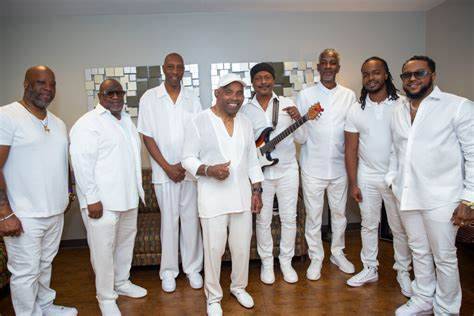
Beverly founded Maze in 1970 in his hometown of Philadelphia, initially calling the group Raw Soul. The band changed its name in the mid-’70s, released several albums, 1977-1993, and developed a loyal following throughout the country. Beverly’s all-white attire on stage is one of his trademarks, along with his smooth baritone voice and ability to connect with the crowd.

Frankie Beverly performed with Maze on the Coca-Cola Classic Stage at the 2008 City Stages festival in Birmingham.(AL.com file photo/Frank Couch)
Beverly and Maze have performed many times in Birmingham over the years, at venues that range from Boutwell Auditorium to the Alabama Theatre to the former City Stages festival. A concert typically becomes a big ol’ dance party when Beverly and Maze take the stage; in fact, some ticketholders have been known to bring maracas and use them for appreciative percussion.
Beverly’s farewell tour is produced by the Black Promoters Collective. “Beverly is embarking in this farewell tour before slowing down to enjoy life in his California Bay Area home,” a press release says. The artist plans to “complete the tour with several major city stops. He’ll then make his way to Philadelphia for a street renaming ceremony in the city where he and his group launched their phenomenal musical legacy.”
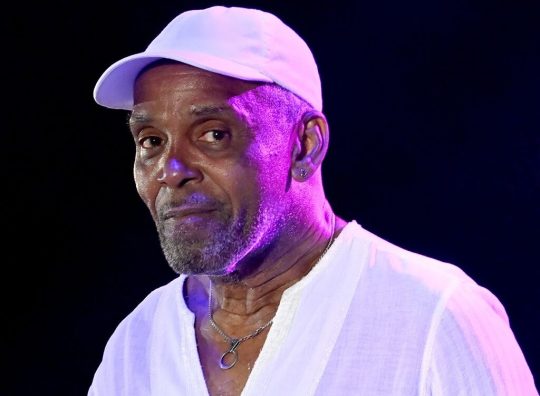
Here are the shows announced thus far for the tour:
March 22, State Farm Arena, Atlanta, Georgia.
April 6. Mobile County Fairgrounds, Mobile, Alabama.
April 13, Toyota Arena, Houston, Texas.
April 27, United Center, Chicago, Illinois.
May 12, KIA Forum, Los Angeles, California.
July 6, Dell Music Center, Philadelphia, Pennsylvania.
ENJOY THE MEMORIES -
youtube
youtube
youtube
youtube
youtube
youtube
#Maze#Frankie Beverly#Legendary R&B singer retiring after 54 years#Black Music Matters#Black Music History#Frankie Beverly and Maze#Frankie Beverly Farewell Tour#Frankie Beverly Retiring#2024#Youtube
3 notes
·
View notes
Text
"Rhythm and blues was too good to remain a black secret for long and as the fifties dawned, certain musically adventurous white DJs started to add it to their playlists. By 1956 a quarter of the best-selling US records would be by black singers. This move was accelerated by the dramatic commercial success of some of the new black stations, exemplified by WDAI in Memphis - since 1948 the first black-owned radio station - which, as well as being home of DJs BB King and Rufus Thomas (he of the 'Funky Chicken'), was extremely profitable.
In adopting this subversive music, white DJs also started adopting black slang. This 'broadcast blackface', as Nelson George calls it, let them speak (and advertise) to both the black community and younger whites. Dewey Phillips of Memphis's WHBG was so successful at integrating his audience that the wily Sam Phillips of Sun Records chose him to broadcast Elvis Presley's first single.
The idea of the 'white negro' was still born of racism, however. George recounts the amazing tale of Vernon Winslow, a former university design teacher with a deep knowledge of jazz, who was denied a radio announcing job on New Orleans' WJMR simply because he was black. After what seemed like a successful interview, Winslow, who was quite light-skinned, was asked, 'By the way, are you a nigger?' Denied an on-air job merely because of his race, Winslow was hired for a most extraordinary job. He was to train a white DJ to sound black. Winslow had to feed a white colleague - now christened Poppa Stoppa - with the latest local slang, teaching him to say things like 'Look at the gold tooth, Ruth' and 'Wham bam, thank you ma'am'. The show became a smash. One night, frustrated by his behind-the-scenes existence, Winslow snuck a turn at the mic. He was fired immediately. WJMR kept the Poppa Stoppa name and continued using a white man, Clarence Hamman, to provide Poppa's voice. (Winslow had his revenge, though, as Doctor Daddy-O on New Orleans' WEZZ where he would become one of the country's top ten DJs.)"
- excerpt from Last Night a DJ Saved My Life by Bill Brewster and Frank Broughton
#black american history#dj history#dj tag#music history#radio history#racism#new orleans history#black music history#vernon winslow#book im reading right now
10 notes
·
View notes
Photo
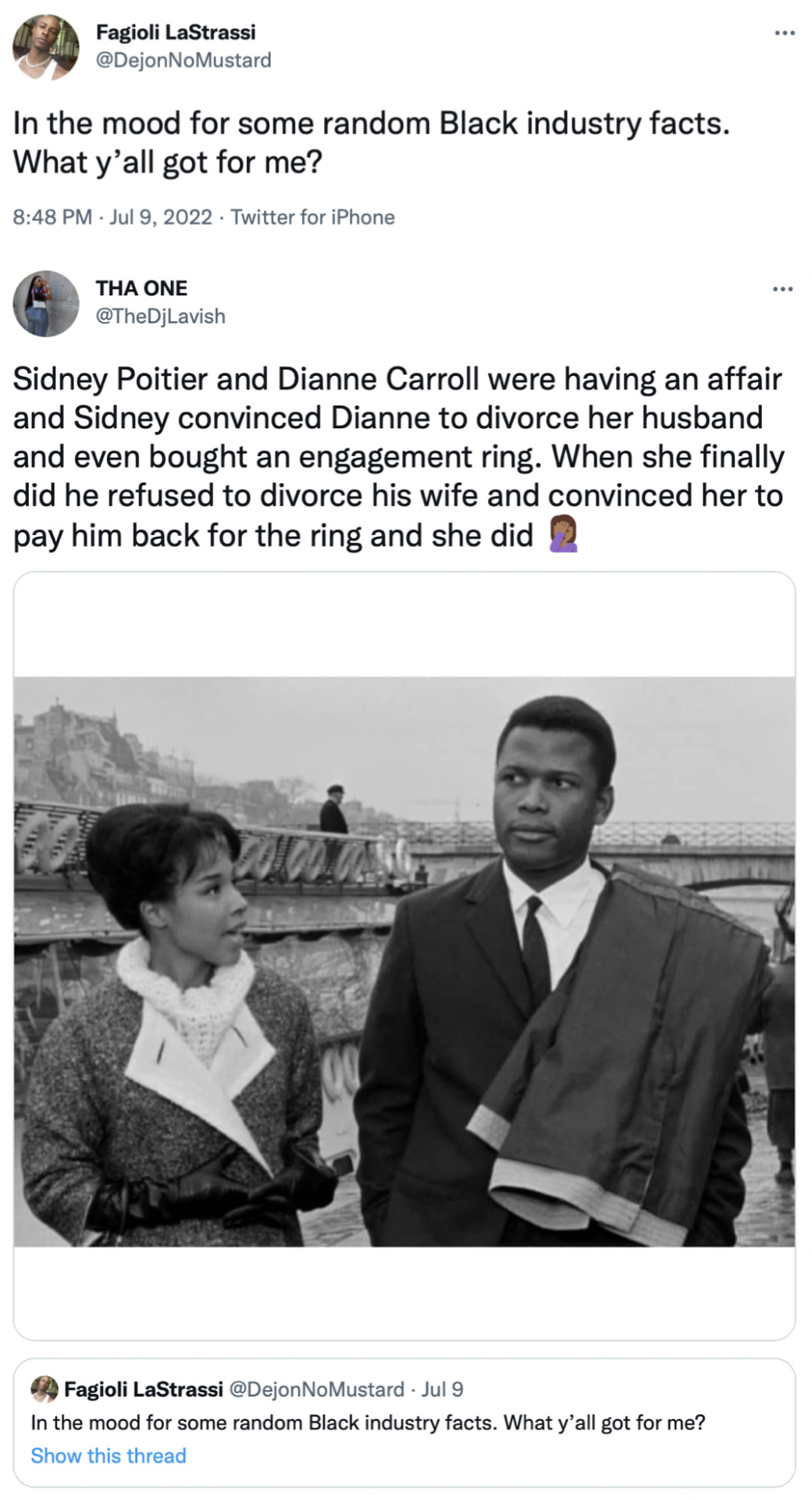


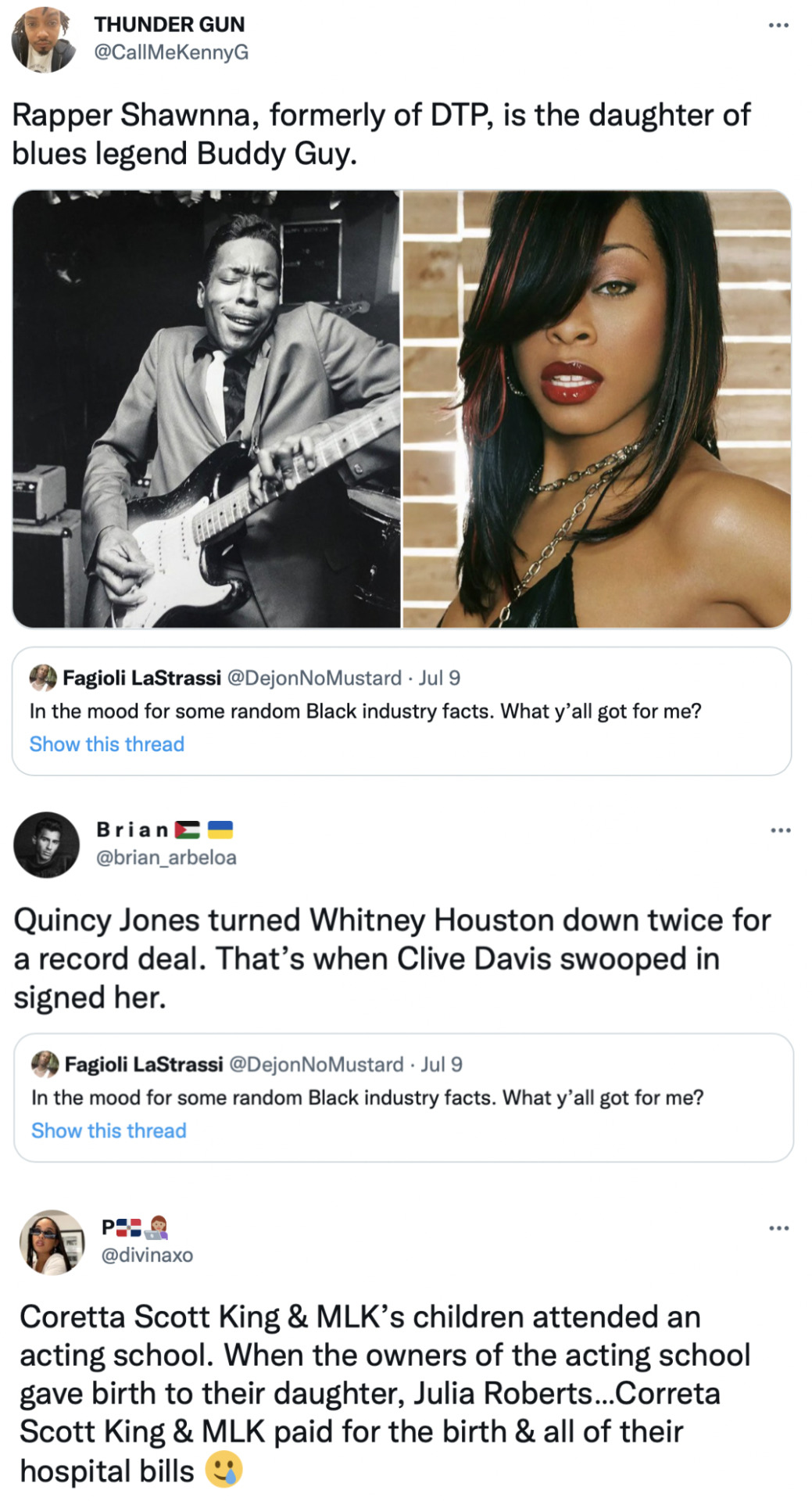

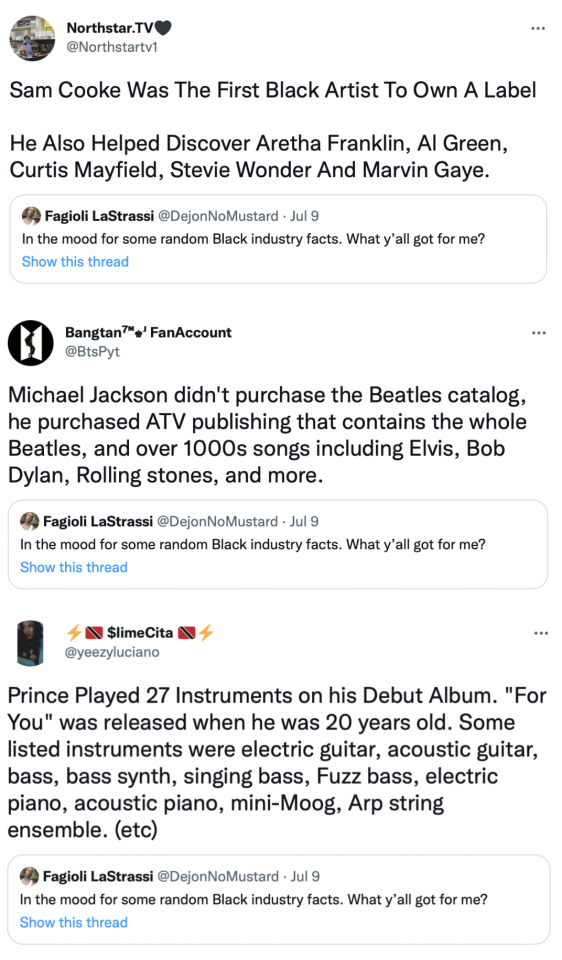


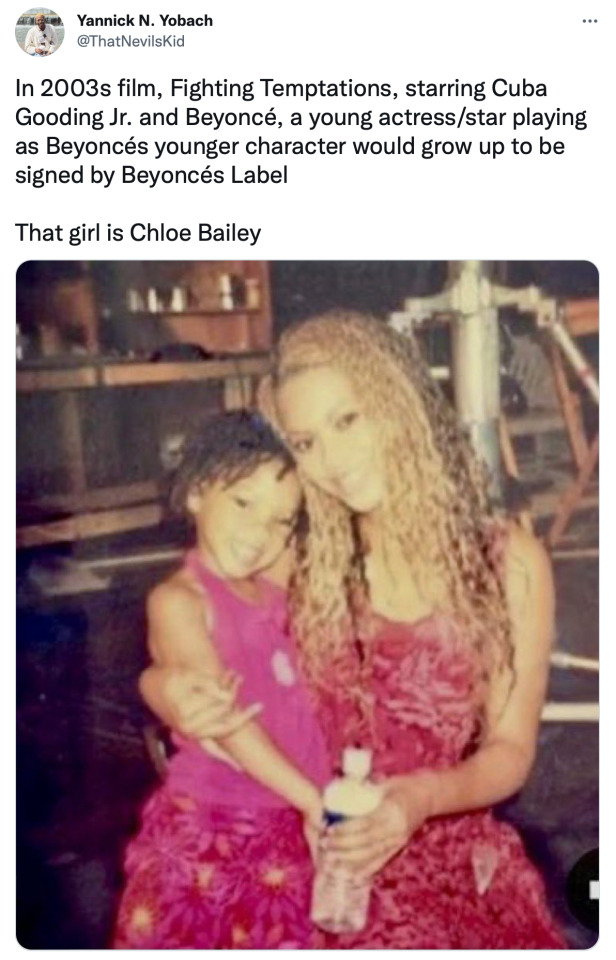

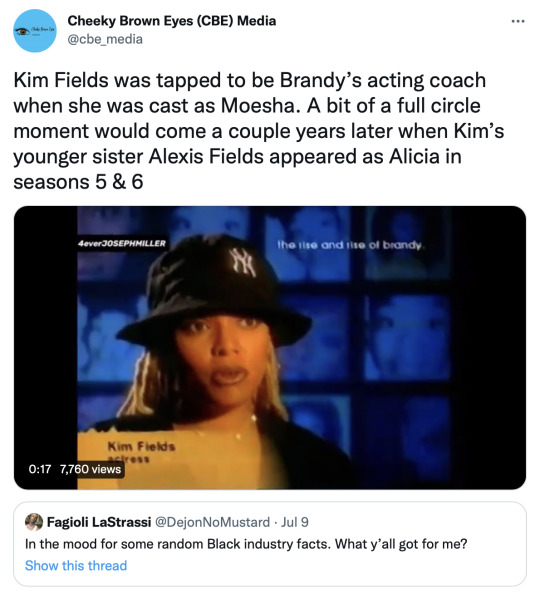

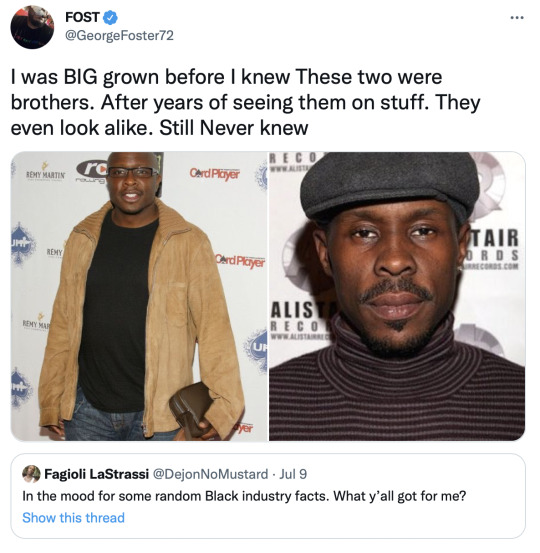
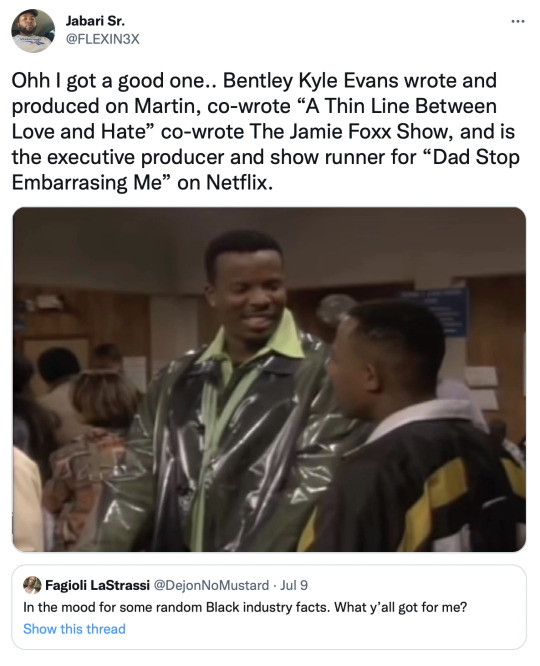
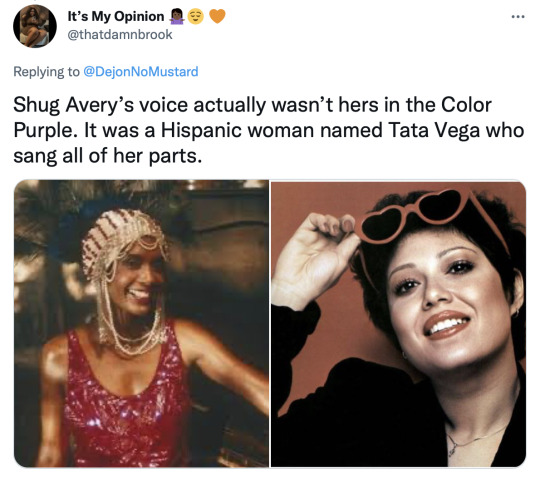
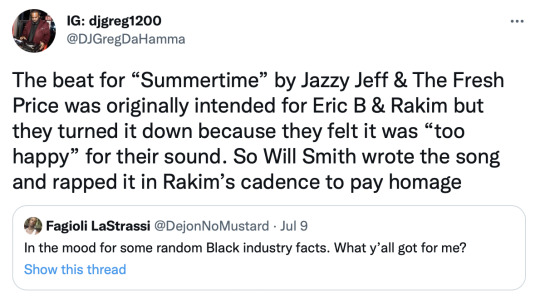
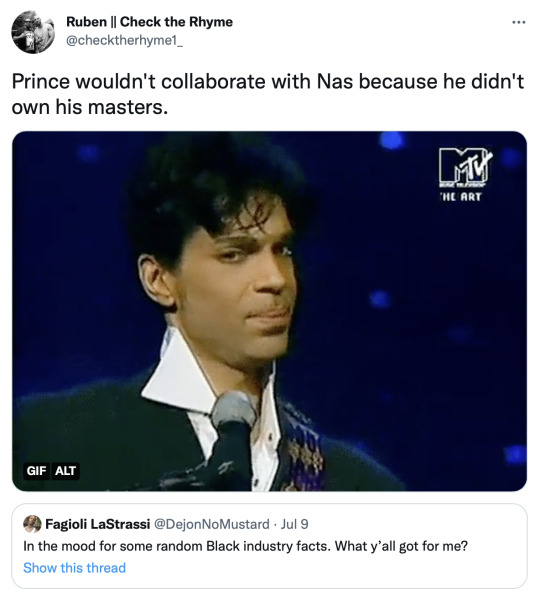
Here’s the clip of Mariah Carey’s characters on American Dad.
This is Part 4. For more trivia: Part 1, Part 2, Part 3, Part 5, Part 6, Part 7, Part 8, Part 9, Part 10, Bonus
#black american history#black music history#movie history#michael jackson#prince#Mariah carey#beyonce#louis armstrong#sam cooke#curtis mayfield#minnie riperton#the fifth element#thechanelmuse trivia
1K notes
·
View notes
Text

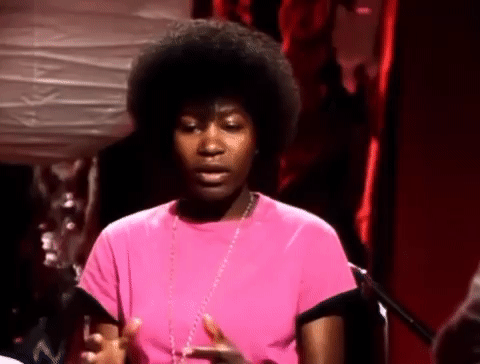
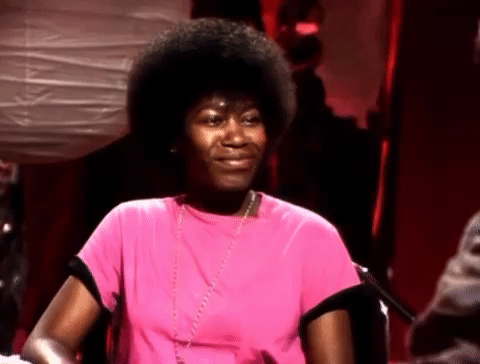
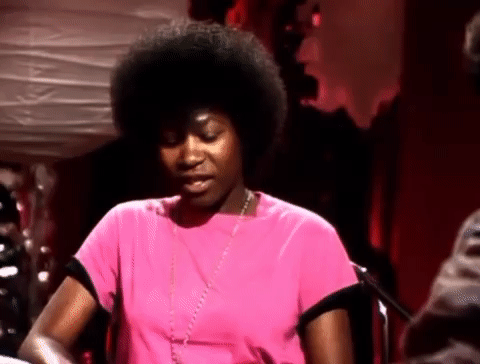
Joan Armatrading on Countdown, April 11th, 1982
39 notes
·
View notes
Text
This is what gospel used to sound like. 😄. Who is your favorite male soul singer? There’s Ray Charles, Otis Redding, David Ruffin, Joe Cocker, Sam Cooke, and many more.
1 note
·
View note
Text
We been about that life...we created it. A reminder:
youtube
youtube
27 notes
·
View notes
Text
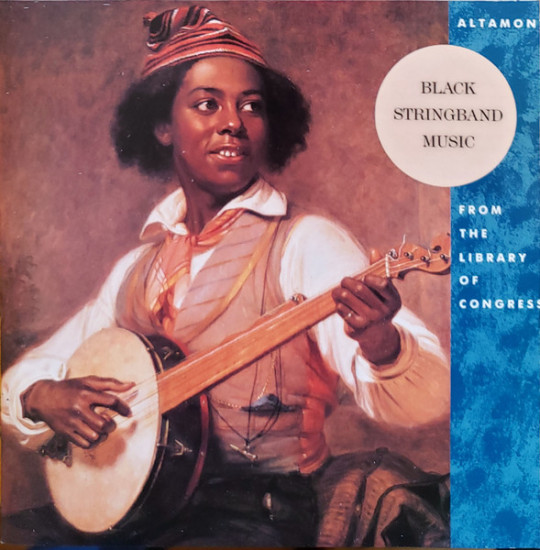
74 notes
·
View notes